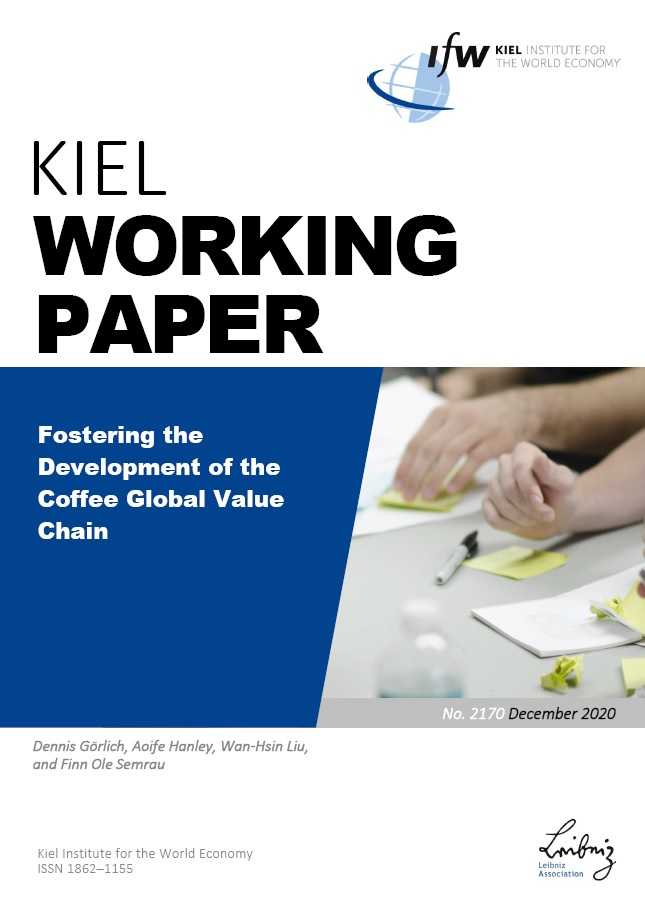MILAN – Due to the special structure of the global coffee trade, smallholders in coffee-growing countries have few opportunities to increase their value added and thus earn higher incomes. This is particularly true for growing Arabica coffee beans that are usually used for coffee roasting. The few large multinational coffee enterprises that dominate the market therefore have an immense social responsibility towards their suppliers.
“The big winners in the global coffee trade over the last 30 years have been the roasters and processors in more advanced countries such as Germany, Italy, and Switzerland. By contrast, the smallholders in the coffee-growing countries have only been able to increase their incomes moderately on average,” conclude IfW researchers Dennis Görlich, Aoife Hanley, Wan-Hsin Liu, and Finn Ole Semrau. They have analyzed the global coffee trade over the past 30 years in a research project financially supported by the Gesellschaft für internationale Zusammenarbeit (GIZ) (“Fostering the Development of the Coffee Global Value Chain” (https://www.ifw-kiel.de/index.php?id=15816). The study is part of the Coffee Development Report 2020 (https://www.internationalcoffeecouncil.com/cdr2020) by the International Coffee Organisation (ICO) (http://www.ico.org/).
According to the study, an ever-increasing share of value added in the coffee global value chain has been realized in coffee processing, especially in coffee roasting. Over the past 30 years, both prices and sales volumes of roasted coffee or related coffee products, such as coffee capsules, rose substantially. The export volume of the roasted coffee increased by four times and the export price even rose by six times. By contrast, the volume and the price of green coffee exports increased only weakly, by around 60 percent each.
The coffee-growing countries, which are mainly emerging and developing countries along the so-called coffee belt around the equator, export about 70 percent of their coffee products, but 87 percent in form of green coffee. Because coffee roasting requires costly investments and is technically more demanding in order to, for example, achieve a constant taste despite varying harvests, such processing work has been mainly carried out by companies with rich capital endowment in more advanced countries such as Germany, Italy, or Switzerland. In addition, it is much more difficult to transport roasted coffee over long distances to its final consumers, mainly in the West, without a loss of quality. Roasting coffee in the coffee-growing countries for the Western consumption market is therefore rather limited to few niche products.
Western companies have responsibility for fair pay
“The usual mechanisms of the global division of labor, which allow raw material suppliers to work their way along the value chain by gradually taking over more sophisticated processing work with more added value, do not really work in the coffee global value chain,” the authors say.
“This is all the more unfortunate because such development along the value chain usually means more prosperity and economic growth for the country as a whole. The few coffee companies in the West that dominate the market therefore have an immense social responsibility toward the coffee-growing countries, particularly for, for example, more sustainable coffee cultivation, good working conditions, fair pay, and more adequate use of technology and machinery on site.”
Especially when growing Arabica coffee beans, which are typically used to produce roasted coffee, coffee farmers can practically only increase their income by improving bean quality. In contrast, for Robusta coffee beans, which are primarily used for soluble coffee production, coffee-growing countries could more easily take over related processing operations. Among other things, because soluble coffee can be transported over longer distances and is less complicated or costly to produce. Vietnam and Ecuador, for example, have been able to build up a corresponding sector over time. Policy on site can support the production and export of soluble coffee through attractive conditions for domestic and foreign investors and good transport infrastructure.
Kiel Working Paper: “Fostering the Development of the Coffee Global Value Chain” (https://www.ifw-kiel.de/index.php?id=15816).


















